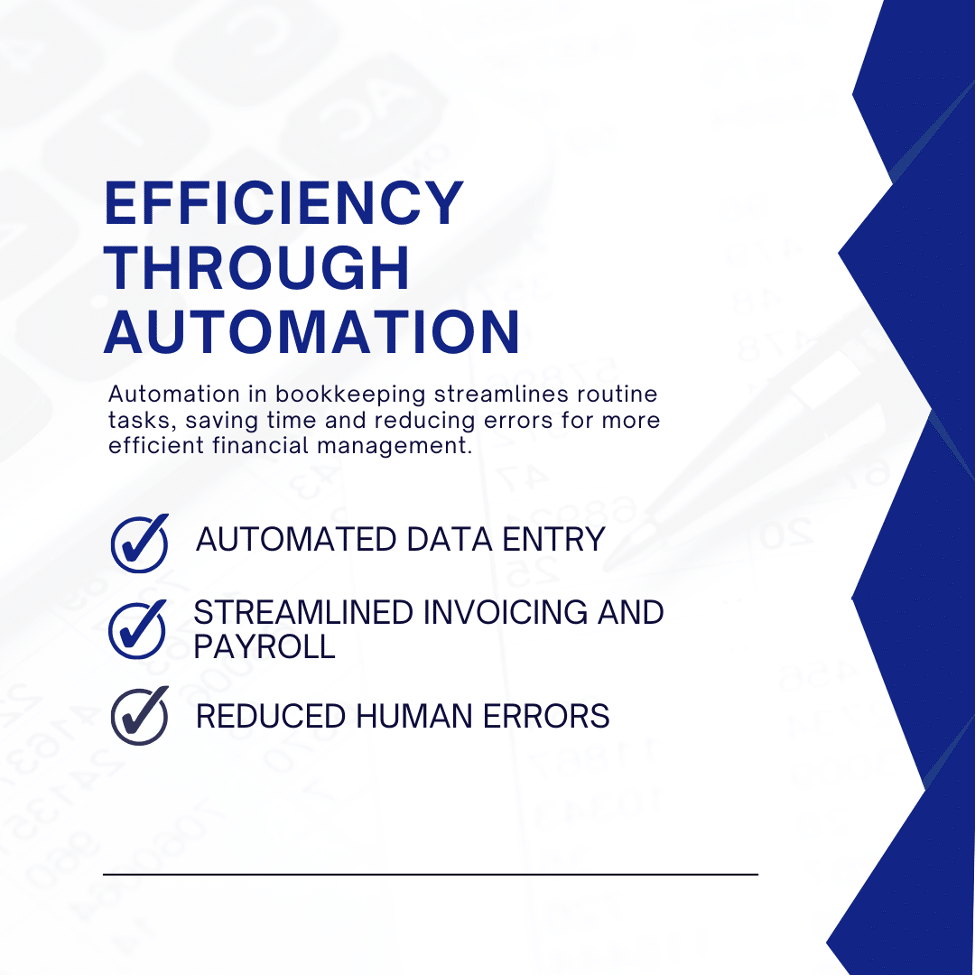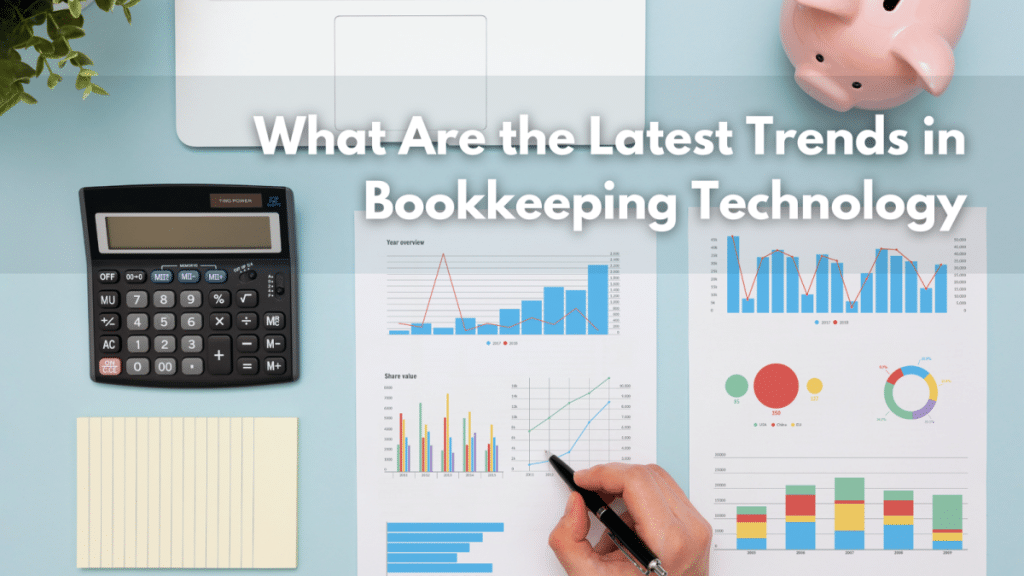The latest advancements in bookkeeping technology are making it easier than ever for businesses to keep their finances in order. With innovations such as automated data entry and cloud-based solutions, These new technologies are reshaping bookkeeping, offering significant benefits to both accountants and small businesses or startups. This article outlines some of the most influential trends in bookkeeping technologies and how each is changing accounting and bookkeeping services today.
Understanding Bookkeeping
Bookkeeping technology encompasses a range of tools and software designed to streamline and enhance the process of recording and managing financial transactions. These technologies have evolved significantly, incorporating automation, artificial intelligence (AI), and cloud-based solutions to improve accuracy, efficiency, and accessibility.
In a bustling city like New York, the demand for real-time, accurate financial data is critical. New York is home to a diverse and dynamic business environment, ranging from startups and small businesses to large corporations. bookkeeping services in ny cater to a wide array of clients, offering specialized solutions to meet the unique financial needs of each business. These services typically include recording day-to-day transactions, processing payroll, preparing taxes, and generating financial reports.
Cloud-Based Solution in Bookkeeping
One of the most significant trends in bookkeeping technology currently is the widespread adoption of cloud-based solutions. Cloud computing has revolutionized how businesses handle their financial data, enabling instant access to bookkeeping records from anywhere in the world. This empowers small businesses with greater flexibility and efficiency, allowing data to be updated and accessed by multiple users simultaneously.
Cloud-based solutions also provide deal-enhanced security features. Businesses store data on secure servers, ultimately keeping financial information away from getting physically damaged, stolen, or lost. Moreover, many cloud-based solutions include automated backups to prevent data loss and ensure easy recovery.
Automation and Artificial Intelligence (AI)
The new age of bookkeeping technologies is being driven at the very forefront by automation and AI, saving a lot of time and effort invested in manual data entry and other routine tasks. Many companies, like Alias, strive to automate as many repetitive tasks as possible—such as invoicing, payroll processing, and bank statement reconciliation—to free up accountants and bookkeepers for more strategic activities.
AI-powered tools also analyze financial information to identify patterns and outliers, providing valuable insights into business performance. For startups or small businesses, this means making more informed decisions about financial management. More than that, AI can flag suspicious transactions against usual practices, hence increasing the security level of financial operations.

Mobile Bookkeeping Applications
Bookkeeping has been significantly affected by the rise of mobile technology. Many who are passionately driven by solutions provide mobile applications for business owners or accountants to take care of their finances on the go—providing real-time updates and notifications. Mobile accounting applications are valuable tools for small businesses or startups, allowing owners to multitask and manage various aspects of their operations.
Mobile apps also provide receipt scanning, a feature that allows users to capture and store all their receipts digitally. This makes it easy to keep track of and report expenses. This functionality is crucial for ensuring accurate records, which aids in tax compliance.
Integration with Other Business Software
Modern bookkeeping solutions integrate with other business software, hence making the workflow smoother and increasing efficiency. For instance, it would be easier to share data and reduce errors when this is integrated with CRM systems, inventory management software, and payroll services.
For accountants and bookkeepers, this means less time spent on manual data entry and reconciliation as data flows from one system to another with ease. This kind of connectivity is very critical to small businesses, where resources are usually limited and efficiency is paramount.
Blockchain Technology
Though mostly associated with cryptocurrency, blockchain technology is moving toward the industry of bookkeeping. Blockchain provides a decentralized system with an immutable ledger, hence making financial records more transparent and secure. With blockchain, one will be quite sure that whatever happens in a business, whether transactions or otherwise, is recorded in a tamper-proof way, reducing fraudulent activities and the possibility of errors.
For bookkeeping services, it can facilitate auditing processes since auditors will have access to a transparent and unalterable record of transactions. It’s still a nascent technology in the bookkeeping domain, yet huge with the potential to disrupt accounting and bookkeeping services.
Improved Data Analytics and Reporting
Advanced analytics may provide detailed reporting with respect to cash flow, profitability, and changes in the trend of the firm’s financial health, hence allowing business owners to make better decisions. Data analytics and reporting tools have evolved to provide firms with an in-depth look into their financial health.
It enables accountants/bookkeepers to produce specific reports to meet the requirements of all their different clients. This feature will be very useful, especially to a startup or small business, since it gives detailed financial insight to guide growth and strategic planning.
Remote Collaboration Tools
This is driving this change toward remote work, encouraging the adoption of collaboration tools within bookkeeping. Virtual meeting platforms, shared document systems, and real-time communication apps are all solutions that help accountants or bookkeepers and business owners work proficiently from any location in the world.
signaling especially high criticality in small business bookkeeping, where team members may be located at different places. In this scenario, remote collaboration tools help everybody to have access to the latest financial data and collaborate over bookkeeping tasks in real-time.
Machine Learning and Predictive Analytics
Machine learning and predictive analytics are rapidly becoming embedded in bookkeeping solution providers. These pick up past financial data to deduce future trends, thus helping businesses predict and prevent cash flow issues better, manage budgets more effectively, and draw attention to growth opportunities.
Offering an edge to strategic decisions with insight is great for predictive analytics, especially in startups and small businesses. It helps bookkeepers act more proactively toward the client by offering them valuable advice.
Enhanced User Experience and User Interface Design
The development of bookkeeping technology increases the focus on user experience and user interface design. State-of-the-art solutions in bookkeeping ease of use by making the interfaces intuitive, reducing complex tasks in finance. All of this emphasis on UX/UI design makes it possible for you to engage in handling your finances effectively, even if you know little about accounting.
This leads to less training time and a reduced chance of errors in small businesses and startups. On the other hand, organized workflows help accountants and bookkeepers to be as productive and efficient as possible.
Industry-Specific Custom Solutions
The other bookkeeping technology trend that proved very vital was the call for developing customized solutions according to industry. These industry-specific tools are meeting unique financial needs and addressing regulatory requirements in such diverse sectors as retail, healthcare, construction, and more.
For example, retail accounting software would include inventory and sales transaction processing. Whereas healthcare will look into patient billing and insurance claims. All these customized accounting solutions guide entrepreneurs to perform their financial management within their specified industries, following the set guidelines.
Environmentally Friendly and Paperless Solutions
This move has translated to adopting eco-friendly and paperless methods of bookkeeping solutions. Digital records reduce the demand for physical storage and lessen the impact of environmental costs related to printing and paper use. Cloud and mobile applications further this trend, allowing businesses to maintain a digital record and reduce paper reliance.
Paperless solutions help enable easier access to records, reduce storage costs, and organize the workspace more systematically. It actually helps smaller businesses reduce costs and contributes less to harming environmental life by consuming fewer resources.
Conclusion
These technological innovations in bookkeeping automate and revolutionize the way in which businesses can run their financial activities very easily. The associated advantages stretch from accountants to startups to small businesses. From cloud to automation and mobile apps to blockchain technology, these innovations provide efficiency, security, and accuracy in the management of finances.
With these trends continuing to develop in the future, only those businesses that will be able to hold their ground with new technologies in bookkeeping will best be positioned and equipped with the intricacies of financial management while hitting strategic goals. For accounting and bookkeeping providers, keeping up with these trends is paramount to delivering value to clients and being competitive in their respective fields. Certainly, the future of bookkeeping is very bright, driven by continuous technological improvements in how businesses handle financial health.
FAQs
What are the main benefits of cloud-based bookkeeping solutions for small businesses?
Cloud-based bookkeeping solutions provide real-time access to financial data from anywhere, enhancing flexibility and collaboration. They also offer robust security features and automated backups, ensuring data protection and easy recovery.
How does automation impact the role of bookkeepers and accountants?
Automation reduces the time spent on repetitive tasks such as data entry and invoicing, allowing bookkeepers and accountants to focus on strategic activities and financial analysis. It also improves accuracy and efficiency in bookkeeping processes.
What is the role of AI and machine learning in modern bookkeeping?
AI and machine learning analyze financial data to identify patterns, predict trends, and detect anomalies, providing valuable insights for decision-making. These technologies enhance security by flagging unusual transactions and reducing the risk of fraud.
